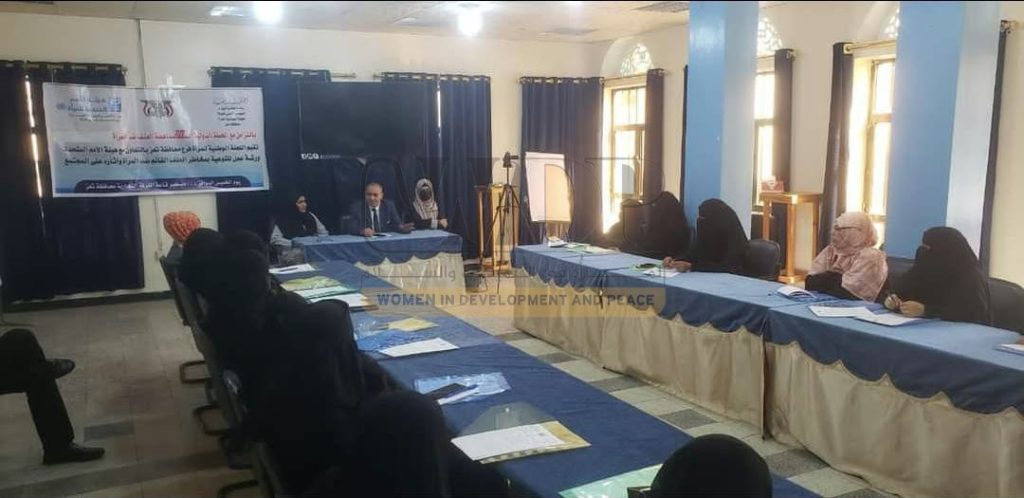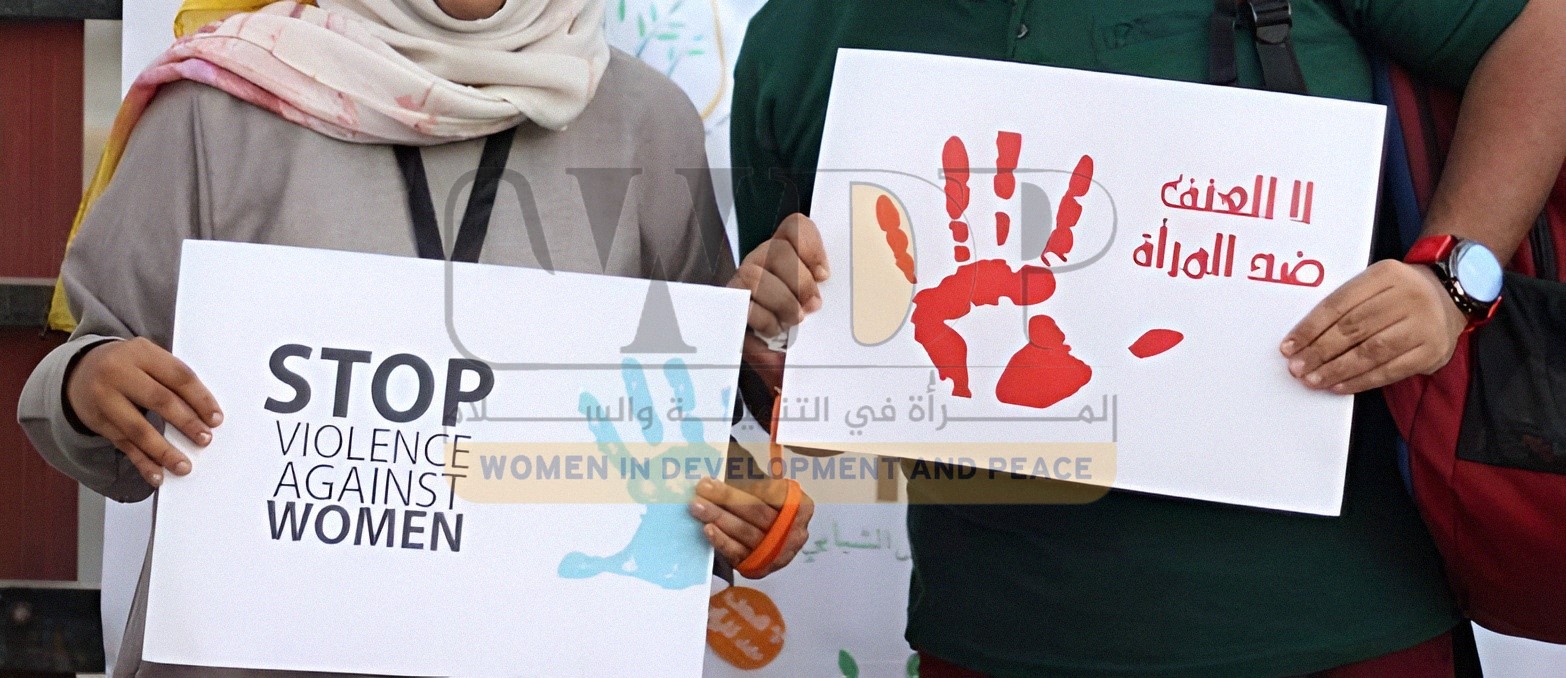Women in Development and Peace – Alia Mohammed
Violence against women is one of the most widespread human rights violations in the world. It’s deeply rooted in most societies, with its forms and types varying between communities, including Yemen, which suffers from the exacerbation of this phenomenon due to ongoing conflicts and complex economic and social conditions.
Women in Yemen face various forms of violence, hindering their progress, and threatening their safety and dignity. This violence reflects a societal imbalance in values, customs, laws, and institutions, with many viewing violence against women as normal, while others see it as unacceptable behavior that affects women’s physical and mental health, sense of security, stability, and societal role.
Prominent activist Altaf Swaid strongly condemns all forms of violence against women in Yemen and rejects it outright, highlighting the significant challenges women face in confronting this violence, experiencing major violations and discrimination due to their gender, weak laws, and traditions that diminish their status and endorse discrimination against them. She emphasizes that violence against women is part of a social system that discriminates between genders, occurring in various cultures and societies. It imposes traditional roles on women, violating their rights and dignity, restricting their freedom, and exposing them to significant health and psychological risks. This negatively impacts their daily and familial lives, depriving them of active participation in society.
Violence against women in Yemen takes various forms, such as physical violence, psychological abuse, sexual harassment, and domestic violence. Enhancing women’s awareness, and education, and empowering them in their societal roles are crucial steps in reducing violence against them.
Journalist Farah Qaid notes that violence against women occurs in many countries worldwide, with some in Yemen still viewing traditional violence as limited to physical assaults only.
Functional violence against women is a negative phenomenon experienced by many Yemeni women, even in supposedly safe environments like the workplace, where challenges range from harassment, discrimination, and long working hours, to low wages.
The destructive phenomenon of workplace violence against women significantly affects economic development, necessitating the enactment of legislation and policies by official bodies and private sectors to protect women’s rights at work, encourage women to report any violence they face, and raise awareness about the importance of combating workplace violence.
Israa Awadh, a sociology student, points out that early marriage and deprivation of education are among the most prevalent forms of violence against women in many Yemeni provinces. She stresses that Yemen faces significant challenges in education and women’s rights, considering it a weak entity in this regard. Deprivation of education and early marriage are among the major problems women face due to the country’s difficult economic conditions, leading to the forced marriage of daughters and denial of education.
Israa emphasizes that early marriage without the girl’s consent exposes her to significant health, social, and psychological risks. It deprives her of her right to knowledge, education, and development, negatively impacting her empowerment, skill development, and aspirations.
She advocates for collective efforts to combat all forms of violence by implementing plans and mechanisms to ensure women’s rights to education and full participation in society, through community awareness, changing behaviors, and beliefs against the violence women face in Yemeni society.
Manal Mohammed, a teacher, pointed out that women are essential in building society. Achieving any development or progress in society can only be done through achieving justice, equality, and protecting women’s rights. This can only be achieved through the collaboration of all segments of society, starting with men who play a significant role in changing their behavior to avoid all forms of violence against women. It’s important to show positive support for women’s rights and dignity and participate in awareness campaigns about women’s rights, which is everyone’s responsibility, both men and women.
Tasnim Tawfiq, a university student, stated that the issue of violence against women is one of the most controversial topics in Yemeni society, especially in the current difficult phase our country is going through in all aspects of life. Many sectors of society view violence against women as normal and part of Yemeni traditions and culture.
She emphasized that these sectors suffer from ignorance about women’s rights and their status in society, something that society must eliminate. This includes its narrow view of violence against women, by changing the culture that justifies it through increasing awareness through campaigns and cultural projects. Additionally, encouraging women to speak out about any violence they face is crucial. Altaf Swaid emphasizes the importance of collaborative and sustained efforts to combat violence against women in Yemeni society. She states, “Fighting violence against Yemeni women requires joint and continuous efforts from all concerned parties through adopting comprehensive and effective national strategies. These strategies should aim to promote the building of a society that respects women’s rights and works towards achieving gender equality, in partnership with local and international supportive organizations.”
She also explained that eliminating forms of violence against women can only be achieved by emphasizing the role of laws and enforcing them strictly and effectively, especially against perpetrators of violence against women. The relevant authorities and civil society organizations must provide psychological, social, and legal support services to female victims of violence, in addition to raising awareness in society, enhancing the status and role of women in all aspects of community life, empowering them economically and socially, and encouraging their political participation.


